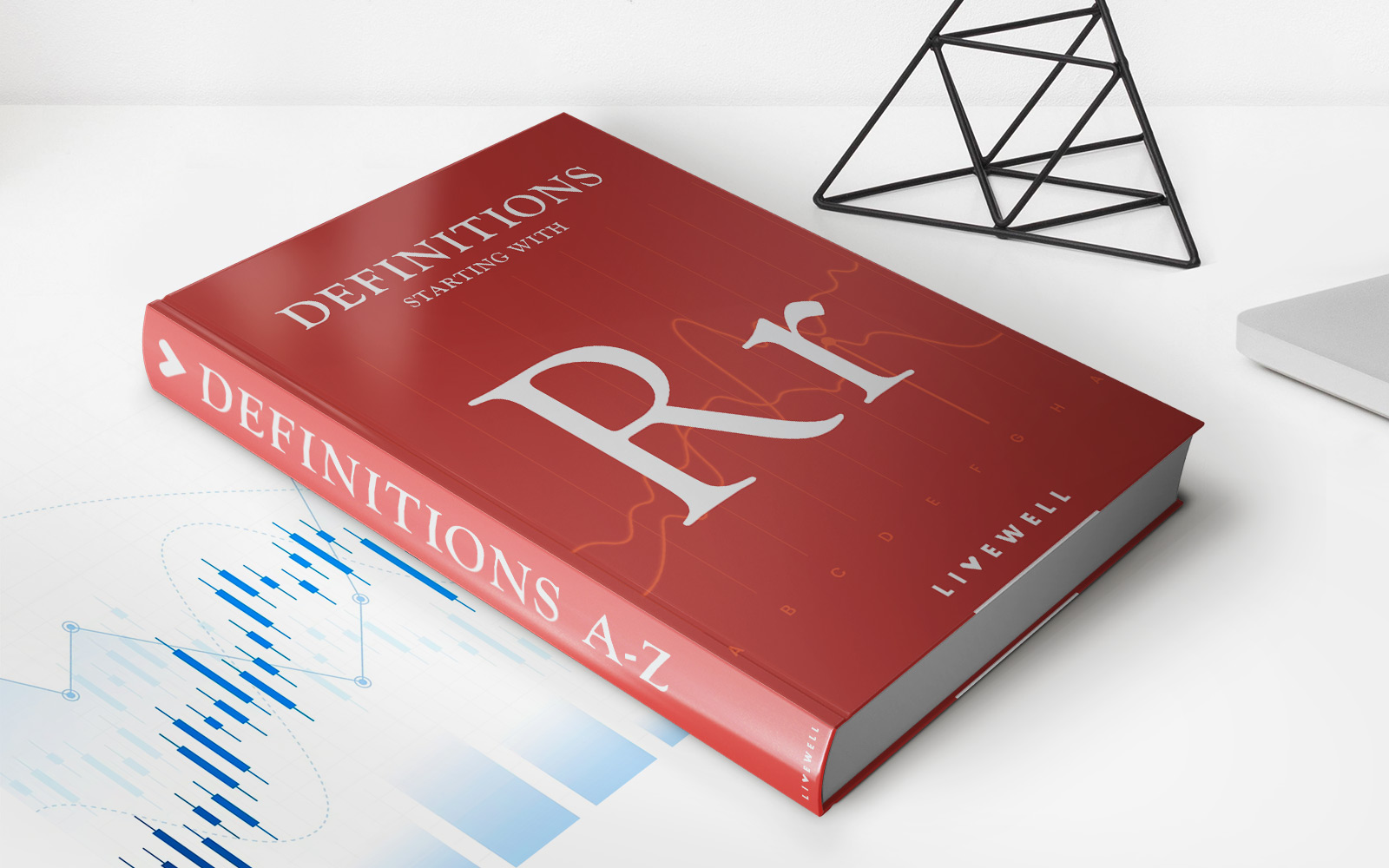

Finance
What Is A Term Mortgage Loan
Modified: February 21, 2024
Looking for information on term mortgage loans? Find out what they are and how they can benefit you in your personal finance journey.
(Many of the links in this article redirect to a specific reviewed product. Your purchase of these products through affiliate links helps to generate commission for LiveWell, at no extra cost. Learn more)
Table of Contents
- Introduction
- Definition of a Term Mortgage Loan
- Features of a Term Mortgage Loan
- Advantages of a Term Mortgage Loan
- Disadvantages of a Term Mortgage Loan
- Eligibility Criteria for a Term Mortgage Loan
- Application Process for a Term Mortgage Loan
- Comparison with other Types of Mortgage Loans
- Considerations before Applying for a Term Mortgage Loan
- Conclusion
Introduction
Welcome to the world of mortgage loans, where you can bring your dreams of homeownership to life. In the realm of mortgage financing, one option that often comes up is a term mortgage loan. This type of loan is designed to help individuals or families purchase a property by spreading out the repayments over a fixed period of time.
So, what exactly is a term mortgage loan? Essentially, it is a loan that has a specific term or duration, during which the borrower makes regular payments to repay the principal amount along with interest. The term of the loan can vary depending on factors such as the borrower’s financial situation, the type of property being financed, and the lender’s policies.
A term mortgage loan can be an attractive option for those looking to buy a property, whether it’s their first home or an investment property. It provides a structured repayment plan that allows borrowers to manage their finances effectively while achieving their homeownership goals.
Throughout this article, we will explore the definition, features, advantages, and disadvantages of a term mortgage loan. We will also discuss the eligibility criteria and application process, as well as consider its merits in comparison to other types of mortgage loans. Finally, we will offer some key considerations to keep in mind before deciding if a term mortgage loan is the right choice for you.
So, if you’re ready to delve deeper into the world of term mortgage loans and discover whether this type of financing aligns with your homeownership aspirations, let’s get started!
Definition of a Term Mortgage Loan
Before we delve into the details, let’s establish a clear definition of a term mortgage loan. In simple terms, a term mortgage loan is a type of loan where the borrower receives a lump sum of money from a lender to purchase a property, with a predetermined repayment term.
The repayment term, also known as the loan term, is a fixed period of time during which the borrower is required to make regular payments to the lender. These payments typically include both the principal amount borrowed and the accrued interest.
The term of a mortgage loan can vary, but it is usually between 15 to 30 years. During this period, the borrower makes monthly mortgage payments, which are comprised of both the principal and interest, until the loan is fully repaid.
Unlike other types of mortgage loans, such as adjustable-rate mortgages or interest-only loans, a term mortgage loan offers stability and predictability in terms of payments. The interest rate is typically fixed for the duration of the loan, meaning the borrower’s monthly payments remain constant throughout the term.
It’s important to note that a term mortgage loan is secured by the property being purchased. This means that if the borrower fails to make the required payments, the lender has the right to foreclose on the property and recover their investment.
Now that we have a clear understanding of what a term mortgage loan entails, let’s explore its features, advantages, and potential disadvantages in the following sections.
Features of a Term Mortgage Loan
Term mortgage loans come with a variety of features that make them a popular choice among homebuyers. Understanding these features can help you navigate the loan process and make informed decisions.
- Fixed Interest Rate: One of the key features of a term mortgage loan is the fixed interest rate. This means that the interest rate remains the same throughout the loan term. This provides stability and predictability, as borrowers can plan their budget knowing that their monthly mortgage payments will remain constant.
- Structured Repayment Plan: With a term mortgage loan, the repayment plan is structured over a predetermined period of time. This allows borrowers to create a realistic budget and make regular payments towards paying off their loan. The fixed repayment term can span from 15 to 30 years, depending on the specific loan agreement.
- Build Equity: As borrowers make their monthly payments, a portion goes towards reducing the principal balance of the loan. This helps build equity in the property over time. Equity represents the value of the property owned outright by the borrower and can be utilized for future financial needs, such as home improvements or other investments.
- Tax Benefits: Homeowners with a term mortgage loan may be eligible for tax benefits. The interest paid on the mortgage loan may be tax-deductible, subject to certain conditions and regulations. This can provide potential savings and reduce the overall cost of homeownership.
- Predictable Payments: As mentioned earlier, the fixed interest rate and structured repayment plan of a term mortgage loan result in predictable monthly payments. This allows borrowers to plan their finances accordingly and avoid unexpected fluctuations in their housing expenses.
These features contribute to the appeal of term mortgage loans for many homebuyers. However, it’s also important to consider the potential drawbacks and evaluate whether this type of loan aligns with your financial goals and circumstances.
Advantages of a Term Mortgage Loan
Term mortgage loans offer several advantages that make them a popular choice among borrowers. Let’s explore some of the key advantages:
- Stability and Predictability: With a term mortgage loan, borrowers benefit from a fixed interest rate and predictable monthly payments. This allows for better financial planning and budgeting, as borrowers can anticipate their housing expenses and ensure they can comfortably make their payments each month.
- Long-term Financing: Term mortgage loans usually have a longer repayment term compared to other types of loans. This provides borrowers with the opportunity to spread out their payments over a longer period, making homeownership more affordable and achievable.
- Equity Building: As borrowers make their mortgage payments, they are gradually building equity in their property. This can be a significant advantage, as homeowners can tap into their equity in the future for various purposes such as home improvements, debt consolidation, or funding other investments.
- Tax Benefits: Homeowners with a term mortgage loan may be eligible for tax benefits. The interest paid on the mortgage loan is generally tax-deductible, which can lead to potential savings. It’s advisable to consult with a tax professional to understand the specific tax advantages applicable to your situation.
- Flexibility in Loan Terms: Term mortgage loans often come with flexible repayment options. Borrowers can choose between different loan terms, such as 15, 20, or 30 years, based on their financial capabilities and preferences. This flexibility allows borrowers to tailor the loan to their specific needs and goals.
Overall, a term mortgage loan provides borrowers with stability, long-term financing options, and a chance to build equity over time. It offers advantages that make homeownership more accessible and manageable for many individuals and families.
However, it’s important to weigh these advantages against the potential disadvantages and consider your personal financial situation before making a decision. In the next section, we will explore the disadvantages of a term mortgage loan to provide you with a comprehensive understanding.
Disadvantages of a Term Mortgage Loan
While term mortgage loans offer numerous benefits, it is important to consider the potential disadvantages before committing to this type of financing:
- Higher Total Interest Paid: Although the fixed interest rate provides stability, it also means that borrowers may end up paying more in interest over the life of the loan compared to other mortgage options. This is particularly true for longer-term loans. It is important to carefully calculate the total interest expenses and weigh them against the other advantages of the loan.
- Long-term Financial Commitment: Opting for a term mortgage loan means committing to a long repayment term, typically ranging from 15 to 30 years. This extended commitment may not be suitable for everyone, especially those who anticipate significant changes in their financial circumstances in the future.
- Reduced Flexibility: While a term mortgage loan offers fixed monthly payments, this lack of flexibility may be a disadvantage for some borrowers. If interest rates decrease significantly, borrowers may not be able to take advantage of the lower rates without refinancing their loan, which can come with additional costs and requirements.
- Potential Prepayment Penalties: Some term mortgage loans may include prepayment penalties, which are fees charged if the borrower decides to pay off the loan early or make additional payments beyond the scheduled amount. It is important to review the terms of the loan agreement to understand if any prepayment penalties apply and factor them into your financial considerations.
- Property as Collateral: With any mortgage loan, including term mortgage loans, the property being purchased serves as collateral. If the borrower is unable to make the payments, the lender has the right to foreclose on the property. This risk highlights the importance of ensuring affordability and maintaining financial stability throughout the loan term.
Understanding the potential disadvantages of a term mortgage loan is crucial for making an informed decision. It’s advisable to carefully weigh these drawbacks against the benefits and evaluate your financial goals and circumstances before proceeding with this type of financing.
Now that you have a comprehensive understanding of both the advantages and disadvantages, let’s explore the eligibility criteria and application process for a term mortgage loan in the next section.
Eligibility Criteria for a Term Mortgage Loan
When applying for a term mortgage loan, it’s important to meet certain eligibility criteria set by lenders. While these criteria may vary depending on the specific lender and loan program, here are some common factors considered:
- Income and Employment: Lenders typically require borrowers to have a stable income source and a consistent employment history. This demonstrates the ability to make regular mortgage payments throughout the loan term. Lenders may request income verification documents such as pay stubs, tax returns, or employment verification letters.
- Credit Score: Creditworthiness plays a significant role in determining loan eligibility. Lenders review credit scores to assess the borrower’s history of repaying debts. While exact credit score requirements can vary, having a higher credit score generally increases the chances of getting approved for a term mortgage loan at a favorable interest rate.
- Down Payment: Most term mortgage loans require a down payment, which is a percentage of the property’s purchase price paid upfront. The specific down payment amount can vary, but it is typically between 5% to 20% of the property’s value. The higher the down payment, the more favorable the loan terms may be.
- Debt-to-Income Ratio: Lenders assess the borrower’s debt-to-income ratio, which compares their monthly debt payments to their monthly income. Ideally, lenders prefer a lower ratio to ensure the borrower has sufficient income to comfortably handle mortgage payments in addition to other financial obligations.
- Property Appraisal: A term mortgage loan requires the property to be appraised by a qualified professional to determine its market value. The appraisal helps the lender ensure that the property’s value aligns with the loan amount being requested, providing security for both the borrower and the lender.
- Documentation: Borrowers will need to provide various documents during the application process, including identification documents, proof of income, bank statements, and tax returns. It’s important to have these documents readily available to streamline the application process.
It is important to note that meeting the eligibility criteria does not guarantee loan approval. Lenders consider multiple factors in their decision-making process, and each application is assessed on a case-by-case basis. Working with a mortgage professional can help navigate the eligibility requirements and increase the chances of approval.
Now that you understand the eligibility criteria, let’s move on to the application process for a term mortgage loan.
Application Process for a Term Mortgage Loan
Applying for a term mortgage loan involves several steps, from gathering documentation to finalizing the loan agreement. Understanding the application process can help you navigate the journey with confidence. Here is a general outline of the steps involved:
- Preparation: Before you begin the application process, it’s important to gather the necessary documentation, such as identification documents, proof of income, bank statements, and tax returns. Having these documents readily available will streamline the process and prevent delays.
- Research and Comparison: Research different lenders and loan programs to find the one that best aligns with your needs and financial goals. Compare interest rates, loan terms, and any additional fees or features to make an informed decision.
- Application Submission: Start the application process by submitting your application to the chosen lender. You can do this online, over the phone, or in person at a branch office. Provide accurate and thorough information to ensure a smooth review process.
- Approval and Documentation Review: Once your application is submitted, the lender will begin the review process. They will assess your creditworthiness, review your documentation, and conduct an appraisal of the property being financed.
- Loan Offer: If your application meets the lender’s criteria, you will receive a loan offer outlining the terms, interest rate, and loan amount. Take the time to carefully review the offer, including any conditions or requirements.
- Loan Acceptance and Processing: If you are satisfied with the loan offer, you can accept it by signing the agreement and returning it to the lender. They will then proceed with processing your loan, which includes verifying the information provided and finalizing the paperwork.
- Underwriting and Approval: The lender will conduct a thorough underwriting process, which involves assessing the risk associated with lending to you. They will evaluate your financial history, employment stability, and other factors to determine if you meet their lending criteria.
- Closing and Funding: Once your loan is approved, you will schedule a closing date. At the closing, you will sign the final loan documents and provide any necessary funds, such as the down payment and closing costs. The lender will then fund the loan, and you will officially become a homeowner.
Remember, the application process may vary slightly depending on the lender and loan program. However, this general outline provides a good overview of what to expect when applying for a term mortgage loan.
Now that you have a clear understanding of the application process, let’s explore how a term mortgage loan compares to other types of mortgage loans in the next section.
Comparison with other Types of Mortgage Loans
When it comes to mortgage loans, there are various options available in addition to term mortgage loans. Understanding the differences between them can help you make an informed decision. Let’s compare term mortgage loans with some other common types of mortgage loans:
- Adjustable-Rate Mortgage (ARM): Unlike term mortgage loans, ARMs have an interest rate that can fluctuate over time based on market conditions. While ARMs often offer lower interest rates initially, they can increase over the life of the loan, leading to uncertainty and potentially higher monthly payments. Term mortgage loans provide stability with a fixed interest rate throughout the repayment term.
- Interest-Only Mortgage: With an interest-only mortgage, borrowers are only required to pay the interest portion of the loan for a specified period, usually between 5 to 10 years. After the interest-only period ends, the borrower must begin repaying both the principal and interest. Term mortgage loans, on the other hand, involve regular payments that include both principal and interest from the start.
- FHA Loans: FHA loans are insured by the Federal Housing Administration and are designed to make homeownership more accessible, especially for first-time buyers. These loans often have lower down payment requirements and more flexible qualifying criteria. In contrast, term mortgage loans are conventional loans that typically require a higher down payment but may offer more competitive interest rates.
- VA Loans: VA loans are available to qualifying veterans, active duty service members, and their eligible spouses. These loans are guaranteed by the Department of Veterans Affairs and offer favorable terms, such as no down payment and lower interest rates. Term mortgage loans, on the other hand, do not have specific eligibility requirements tied to military service.
- Jumbo Loans: Jumbo loans are mortgage loans that exceed the conforming loan limits set by the Federal Housing Finance Agency. These loans are typically used for higher-priced properties. Term mortgage loans are generally more accessible and have lower maximum loan limits, making them suitable for a wider range of property values.
Each type of mortgage loan has its own set of advantages, disadvantages, and eligibility criteria. It is important to carefully consider your financial situation, goals, and preferences when choosing the right type of loan for your specific needs.
Now that you have compared term mortgage loans with other types of mortgage loans, let’s move on to some key considerations to keep in mind before applying for a term mortgage loan.
Considerations before Applying for a Term Mortgage Loan
Before jumping into a term mortgage loan, there are some important considerations to keep in mind to ensure you make the best decision for your financial situation:
- Financial Stability: Evaluate your financial stability, including your income, expenses, and debt obligations. Consider whether you have a stable job and a reliable source of income to comfortably afford the monthly mortgage payments throughout the loan term.
- Down Payment: Determine the amount of down payment you can afford. While a larger down payment can provide advantages such as better loan terms and lower monthly payments, it’s important to consider how much you can comfortably put towards a down payment without compromising your financial security.
- Repayment Capacity: Assess your debt-to-income ratio and evaluate how the mortgage loan will impact your overall financial obligations. Consider whether you have room in your budget for unexpected expenses and future financial goals, such as retirement savings or education expenses.
- Future Plans: Consider your future plans and how they may affect your ability to fulfill the long-term commitment of a term mortgage loan. If you anticipate significant life changes, such as job changes, starting a family, or relocating, it’s important to evaluate how these changes may impact your ability to maintain mortgage payments.
- Interest Rates: Stay informed about prevailing interest rates to better assess whether it’s a good time to lock in a fixed rate or consider other loan options. Monitoring market trends can help you make a more informed decision about the timing of your loan application.
- Comparison Shopping: Take the time to shop around and compare loan offers from different lenders. Examine the interest rates, loan terms, fees, and customer reviews to choose a reputable lender that offers favorable terms that align with your needs and financial goals.
By carefully considering these factors, you can make a more informed decision about whether a term mortgage loan is the right choice for you. It’s always a good idea to consult with a mortgage professional who can provide personalized guidance based on your unique circumstances.
Now that we have explored key considerations, it’s time to conclude our discussion on term mortgage loans.
Conclusion
Term mortgage loans offer a structured and predictable approach to financing your dream of homeownership. With a fixed interest rate and a pre-determined repayment term, these loans provide stability and peace of mind for borrowers. They allow you to make regular payments over an extended period, building equity in your property and enjoying the benefits of homeownership.
Throughout this article, we have covered the definition, features, advantages, and disadvantages of a term mortgage loan. We explored how it compares to other types of mortgage loans and discussed important considerations to keep in mind before applying.
While term mortgage loans provide many advantages, it’s important to consider your financial situation, goals, and preferences when making a decision. Assessing your ability to make mortgage payments, evaluating the potential drawbacks, and comparing loan offers from different lenders can help you make an informed choice that aligns with your needs.
Remember, every individual’s financial circumstances are unique, so it’s crucial to consult with a mortgage professional who can provide personalized guidance tailored to your specific situation.
Now that you have a solid understanding of term mortgage loans, take the next steps towards homeownership with confidence. As you embark on this exciting journey, may your path be paved with financial stability, wise decisions, and the joy of owning your own home.














